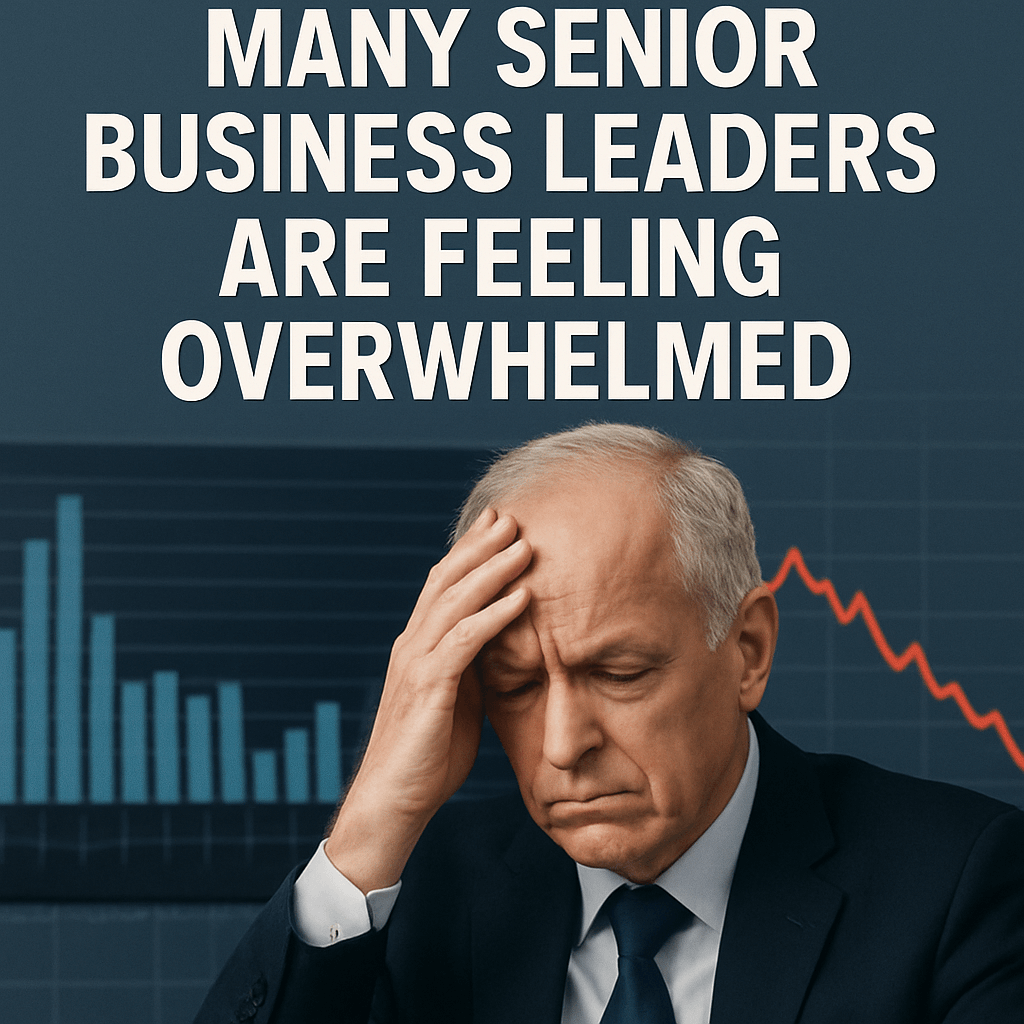Many Senior Business Leaders Are Feeling Overwhelmed

Good morning!
Amid an increasingly challenging economic and geopolitical landscape, senior executives are feeling the pressure. A comprehensive report by the executive coaching and advisory firm Vistage, based on their CEO Confidence Index, reveals alarming trends regarding executive burnout.
The State of Executive Burnout
According to Vistage’s findings, 71% of CEOs at small to mid-sized firms report experiencing burnout occasionally, while more than a third (32%) claim they have faced it frequently over the past year. Approximately 7% acknowledge experiencing these overwhelming feelings almost daily. This rising tide of burnout is symptomatic of broader systemic issues at play.
Impact of Rapid Technological Transformation
As businesses adapt to rapid technological advancements, executives are compelled to navigate uncharted digital waters. Transformations such as the integration of artificial intelligence (AI), cloud computing, and data analytics require not just technical skill but also a substantial cultural shift within organizations. The accelerated demand for digital agility has left many CEOs feeling isolated and overwhelmed. Joe Galvin, chief research officer at Vistage, notes, “Unlike most roles, CEOs often face these challenges alone, with few trusted peers to lean on. That isolation makes the weight of leadership even heavier.”
Volatility in Markets and Employee Expectations
The economic landscape has become increasingly volatile. In recent months, fluctuating interest rates, inflationary pressures, and geopolitical tensions have contributed to executive anxiety. In fact, 58% of CEOs surveyed indicated that they believe the current economic conditions in the U.S. are worse than a year ago, with 44% expecting further declines within the next 12 months. This sentiment is mirrored by nearly 38% of leaders pointing to decreased profit margins and over half (52%) anticipating price hikes in the coming quarter—a trend that could necessitate tough decisions regarding workforce management and operational expenditures.
Executive Turnover and its Implications
The issues are not confined to small and mid-sized businesses; executives across larger firms are also feeling the strain, prompting a notable increase in CEO turnover. Data from the CEO Turnover Index by executive search and advisory firm Russell Reynolds Associates shows that the average tenure for CEOs has dropped to 6.8 years in Q1 2025, significantly down from approximately eight years during the same period in 2024. This decline reflects not only the high stakes and increased demands of the role but also a cultural shift in which fewer leaders are willing to take on the CEO mantle.
The Cultural Shift in Leadership Aspirations
Brad Pugh, a partner and leadership advisor at Russell Reynolds Associates, observes a troubling trend where potential candidates for CEO positions are increasingly reluctant to pursue the top job due to the heightened pressures associated with it. “You used to put a group of potential CEOs in a room, and everybody would be clamoring for the top job,” he explains. “Now we’re hearing more people advocating for the number two or three position, not sure if they have all the accountability and visibility that comes with being in that number one seat.” This indicates a significant cultural shift in leadership aspirations and the viability of the C-suite as an attractive destination for top talent.
Strategies for Mitigating Burnout
Given the increasing levels of stress and burnout among executives, organizations must adopt supportive strategies to maintain leadership health. Here are some actionable recommendations:
- Implement Peer Networks: Facilitating peer mentorship and support networks can mitigate feelings of isolation.
- Invest in Mental Health Resources: Providing access to mental health professionals and promoting wellness programs can help leaders cope with stress.
- Foster Open Communication: Encouraging open dialogue about challenges may relieve some of the pressures executives face.
The Broader Implications for Businesses
The growing sense of burnout among executives is a bellwether for the broader ecosystem of corporate governance. A decline in leadership effectiveness could lead to ripple effects across industries, affecting everything from employee morale to investor confidence. As businesses continue to navigate an unpredictable economic environment, prioritizing mental health and sustainability of leadership will be crucial for long-term success.
In conclusion: As burnout intensifies, it is imperative for organizations to understand the root causes and strive toward creating a supportive and sustainable work environment for their leaders.
– Brit Morse, Leadership Reporter at Fortune